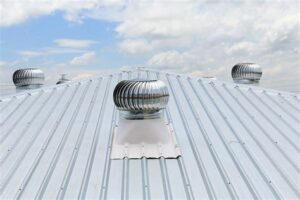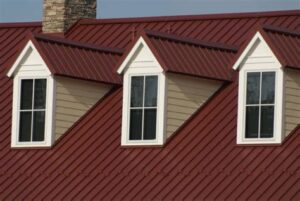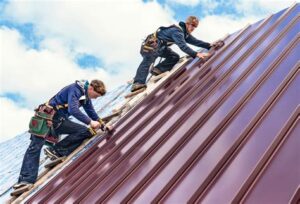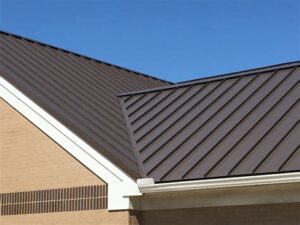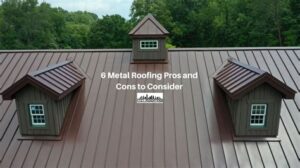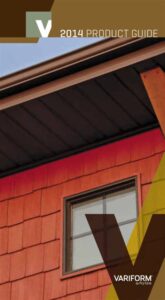When it comes to choosing the right roofing material for your home, the decision between metal and shingle roofs can be daunting. Each option presents its own unique benefits and challenges, making it essential to understand the key differences. In this article, we’ll delve into the basics of metal and shingle roofs, highlighting ten surprising aspects that set metal roofs apart from their shingle counterparts. From cost comparisons to durability factors, we’ll guide you through the critical elements to consider. Whether you’re building a new home or upgrading your existing roof, our insights will help you make an informed choice that best suits your needs. Join us as we explore the fascinating world of roofing materials and discover which one reigns supreme for your property.
Understanding The Basics Of Metal And Shingle Roofs
When it comes to roofing materials, metal and shingles are two of the most popular options available. Understanding the basics of these materials can help you make an informed decision for your roofing needs.
Metal roofs are typically made from materials like steel, aluminum, or copper. Known for their longevity and resilience, they can last 40 to 70 years with proper maintenance. One of the key characteristics of metal roofing is its ability to reflect heat, which can lead to energy savings in warmer climates. Additionally, metal roofing is lightweight, making it easier to install and minimizing the stress on the underlying structure of your home.
On the other hand, shingle roofs usually consist of asphalt or fiberglass and are favored for their traditional aesthetic and lower upfront costs. Shingles are easy to install and come in a variety of colors and styles, which makes them a versatile choice for many homeowners. However, their lifespan typically ranges from 15 to 30 years depending on the quality of the shingles and maintenance provided.
Both roofing types have their own unique set of features and benefits, and understanding these basics lays the groundwork for the subsequent 10 things that differentiate metal roofs from shingle roofs. As you evaluate the options for your roofing project, considering factors such as durability, cost, and aesthetic appeal will be essential to making the best choice for your home.
10 Things That Make Metal Roofs Unique
Metal roofs stand out in various aspects that contribute to their growing popularity among homeowners. Here are 10 things that make metal roofs unique:
- Longevity: Metal roofs can last 40-70 years, significantly surpassing the lifespan of traditional shingle roofs, which typically last around 20 years.
- Energy Efficiency: Many metal roofs are designed to reflect solar radiant heat, which can reduce cooling costs by 10-25% during hot months.
- Environmental Impact: Metal roofs are often made from recycled materials and are 100% recyclable at the end of their lifecycle, making them a sustainable choice.
- Fire Resistance: Metal roofing is non-combustible, offering a higher degree of fire resistance compared to shingle roofs, which can ignite in extreme conditions.
- Variety of Styles: Metal roofs are available in various designs, colors, and finishes, allowing homeowners to choose a style that complements their home.
- Wind Resistance: Properly installed metal roofs can withstand high winds (up to 140 miles per hour), making them suitable for storm-prone areas.
- Lightweight: Metal roofs weigh less than shingle roofs, which can reduce the structural load on your home and make installation easier.
- Low Maintenance: Metal roofs require minimal maintenance, requiring typically just periodic cleaning to maintain their appearance.
- Noise Factor: While some believe metal roofs are noisy during rain, proper insulation can mitigate this effect significantly.
- Increased Home Value: The durability and aesthetic appeal of metal roofs can translate to higher resale value for your home compared to shingle alternatives.
These unique characteristics highlight why more homeowners are gravitating towards metal roofing options, providing not just protection but also enhancing the overall value of their homes.
Cost Comparison: Metal Roofs Vs Shingle Roofs
When considering a new roof for your home, one of the most significant aspects to evaluate is the cost associated with each type of roofing material. While both metal and shingle roofs have their advantages, their pricing structures vary considerably.
Metal roofs typically come with a higher upfront cost, ranging from $120 to $900 per 100 square feet, depending on the material choice (such as aluminum, steel, or copper) and the complexity of the installation. However, their longevity, which can exceed 50 years with proper maintenance, often offsets this initial investment. Additionally, metal roofs are known for their energy efficiency, which can lead to substantial savings on utility bills over time.
On the other hand, shingle roofs are generally more budget-friendly, with average costs between $90 to $200 per 100 square feet. Asphalt shingles, the most prevalent type, have a lifespan of around 15 to 30 years. While they are less expensive upfront, homeowners might experience higher long-term costs due to more frequent replacements and repairs compared to metal roofs.
In terms of maintenance, metal roofs require less upkeep due to their resistance to issues such as mold growth, rot, and pest infestation. This can translate into lower costs throughout the lifespan of the roof.
When conducting a total cost analysis, it’s essential to factor in these elements:
- Initial installation cost
- Long-term durability and lifespan
- Maintenance requirements
- Energy efficiency and potential savings
Determining which roofing material to choose hinges on a combination of budget, aesthetic preferences, and long-term investment goals. Understanding the cost differences is crucial for homeowners to make informed decisions, especially when evaluating these 10 things about metal vs shingle roofs.
Durability Factors: Metal Vs Shingle Roofs
When considering roofing materials, durability is a critical factor that resonates with homeowners. Here, we’ll explore the differences between metal roofs and shingle roofs in terms of their longevity, resistance to elements, and maintenance requirements.
Metal roofs are renowned for their exceptional durability. With a lifespan that can exceed 50 years, they are resistant to fire, rot, and pests. These roofs can withstand high winds and heavy snowfall, making them ideal for extreme weather conditions. Additionally, metal roofs reflect sunlight, which can help to keep your home cooler and potentially reduce energy costs over time.
On the other hand, asphalt shingles typically last about 15 to 30 years, depending on the quality and type chosen. While modern shingles are designed to endure various weather conditions, they are more vulnerable to damage from wind and hail. Furthermore, they may require more frequent maintenance and replacement compared to their metal counterparts.
| Durability Factors | Metal Roofs | Shingle Roofs |
|---|---|---|
| Average Lifespan | 50+ years | 15-30 years |
| Wind Resistance | Up to 140 mph | Varies, typically lower |
| Fire Resistance | Class A | Class A (depends on material) |
| Pest Resistance | Highly resistant | Susceptible to infestation |
| Maintenance Needs | Low maintenance | Moderate to high maintenance |
When weighing the 10 things that differentiate metal roofs from shingles, it’s clear that metal roofs often offer superior durability and long-term cost-effectiveness. However, factors such as initial cost, aesthetics, and local climate should also be considered when making your choice.
Choosing The Right Roof Material For Your Home
When it comes to selecting roofing materials, homeowners often face a critical decision: whether to go for metal or shingle roofs. Each option has its own set of advantages and disadvantages, making it essential to evaluate your specific needs and circumstances. Here are some factors to consider when making this important choice.
10 Things to keep in mind include:
- Climate: The climate in your region plays a significant role in determining which roofing material is suitable. Metal roofs are highly reflective and can help keep homes cooler in hot weather, while asphalt shingles can provide better insulation in colder climates.
- Longevity: If you plan to stay in your current home for a long time, investing in a metal roof may be worthwhile, as they typically last longer—often up to 50 years or more—compared to shingles, which usually have a lifespan of 20-30 years.
- Maintenance: Metal roofs require less maintenance compared to shingle roofs. While both types can benefit from routine inspections, metal roofs are less prone to common issues such as moss growth and curling.
- Home Value: If you are considering resale value, metal roofs often add more to the home’s value due to their durability and energy efficiency, which might appeal to prospective buyers.
- Budget: Evaluate your budget carefully. Metal roofs generally have a higher upfront cost compared to shingles, though long-term savings on repairs and energy bills can offset this.
- Style Preferences: Consider the architectural style of your home. While metal roofs come in various styles and colors, asphalt shingles may offer a more classic appearance that complements older homes.
- Noise Levels: Metal roofs can amplify sound during heavy rain or hail, which could be a consideration for some homeowners looking for a quieter option.
- Installation Process: The installation of metal roofs can be more complex and may require professional installation, which could result in higher labor costs than installing asphalt shingles.
- Environmental Impact: If sustainability is a priority, metal roofs are often made from recycled materials and are 100% recyclable at the end of their lifespan, making them an eco-friendlier option compared to the petroleum-based components of asphalt shingles.
- Local Regulations: Be aware of any local building codes and regulations that may affect your choice of roofing. Some areas have specific guidelines regarding roofing materials that you must follow.
Selecting the right roof material for your home involves weighing these aspects carefully. By considering these factors, you will be better equipped to make a choice that meets your practical needs while aligning with your long-term goals.
Frequently Asked Questions
What are the main differences between metal and shingle roofs?
Metal roofs are typically more durable and have a longer lifespan compared to shingle roofs, which are often less expensive but may need to be replaced more frequently.
How do the costs compare between metal and shingle roofing?
While metal roofing usually has a higher upfront cost, it may save homeowners money in the long run due to its durability and energy efficiency.
What are the maintenance requirements for each type of roof?
Metal roofs require less maintenance, as they are more resistant to mold and algae growth, while shingle roofs need regular inspections and cleaning to extend their lifespan.
Which roofing option is more energy-efficient?
Metal roofs are generally more energy-efficient due to their reflective properties, which can help keep homes cooler in hot weather.
Can both types of roofing withstand severe weather conditions?
Yes, both metal and shingle roofs can withstand severe weather, but metal roofs usually perform better against high winds and hail damage.
What are the aesthetic options available for metal and shingle roofs?
Shingle roofs offer a wide variety of styles and colors to match different architectural designs, while metal roofs can also be customized but may have a more industrial appearance.
How does the installation process differ for metal and shingle roofs?
The installation of metal roofs is typically faster and requires fewer materials than shingle roofs, but it often requires specialized expertise.
